Big Red Book
Celebrating television's This Is Your Life
Dame Edith SITWELL DBE (1887-1964)

THIS IS YOUR LIFE - Edith Sitwell, poet and writer, was surprised by Eamonn Andrews on the stage of the BBC Television Theatre, having been led to believe she was there to take part in a different television programme.
Edith, who was born in Scarborough, grew up at Renishaw Hall, the Sitwell estate near Sheffield, and was educated by governesses. Having moved to London in 1912, the Daily Mirror published her first poem, The Drowned Suns, the following year.
She published her first collection of verse, The Mother and Other Poems, in 1915, and by the 1920s was regarded as a poet of extraordinary talent and wit. She travelled widely and became one of the great poets of her age, becoming the first poet to be made a Dame in 1954.
programme details...
- Edition No: 201
- Subject No: 202
- Broadcast date: Tue 6 Nov 1962
- Broadcast time: 7.55-8.25pm
- Recorded: Mon 22 Oct 1962 8.00pm
- Venue: BBC Television Theatre
- Series: 8
- Edition: 6
on the guest list...
- Marjorie Proops
- Veronica Gilliat - cousin
- Tom Driberg
- Geoffrey Gorer
- Anthony Bernard
- Diana, Baroness de Bosmelet
- Cecil Beaton
- Sacheverell Sitwell - brother
- John Robins
- George Cukor - via telephone
- Velma LeRoy
- Osbert Sitwell - brother
- Georgia Sitwell - sister-in-law
- Reresby Sitwell - nephew
- Francis Sitwell - nephew
production team...
- Researcher: John Dalzell
- Writer: John Dalzell
- Director: Vere Lorrimer
- Producer: T Leslie Jackson
- names above in bold indicate subjects of This Is Your Life

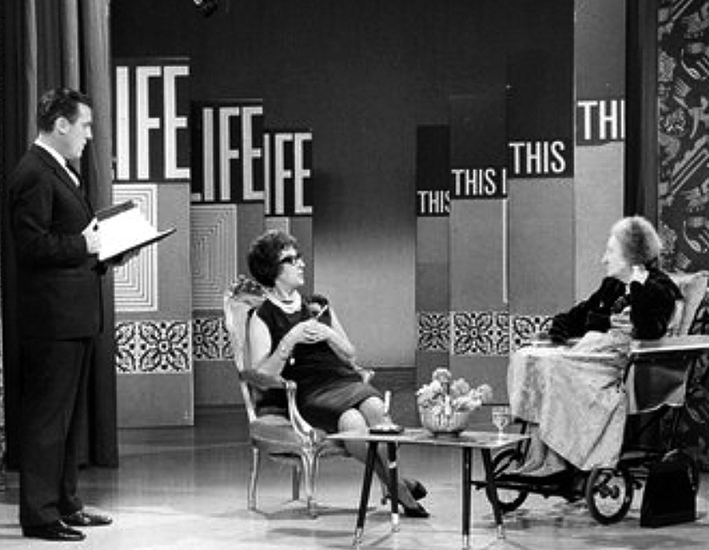
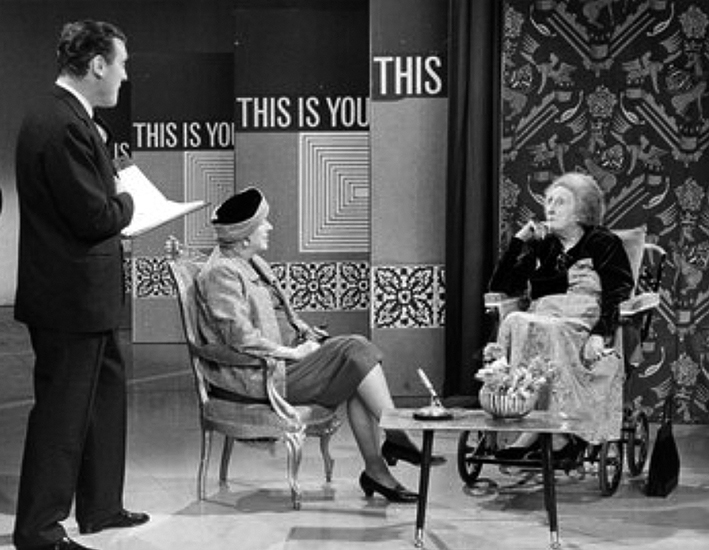
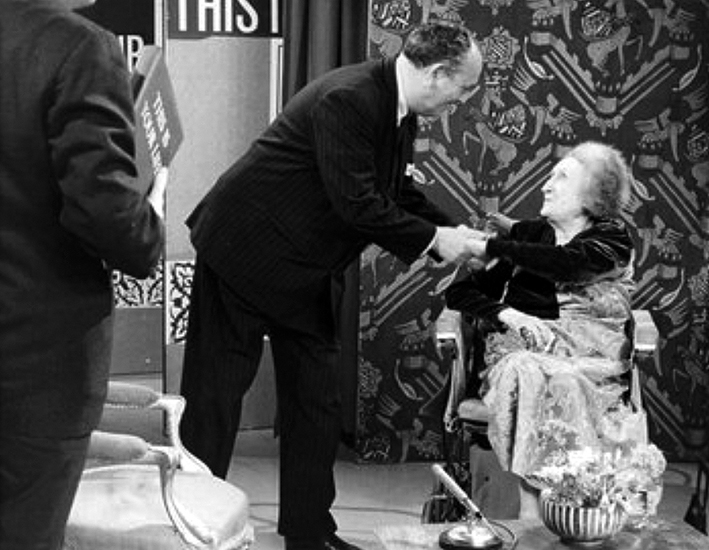
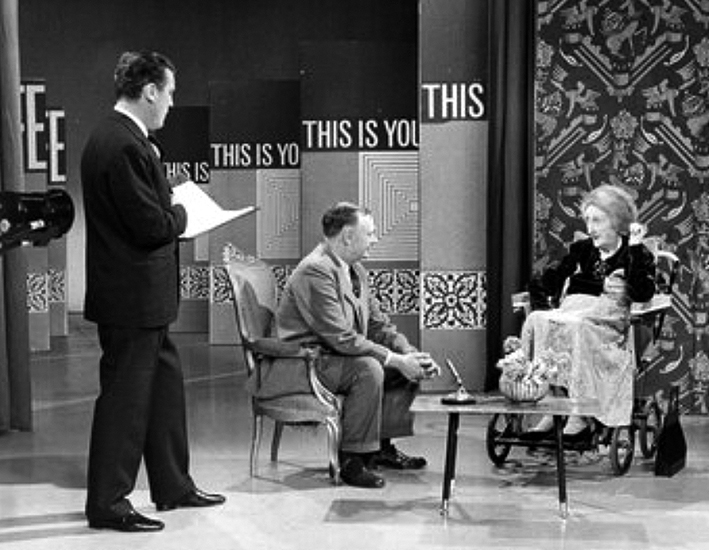
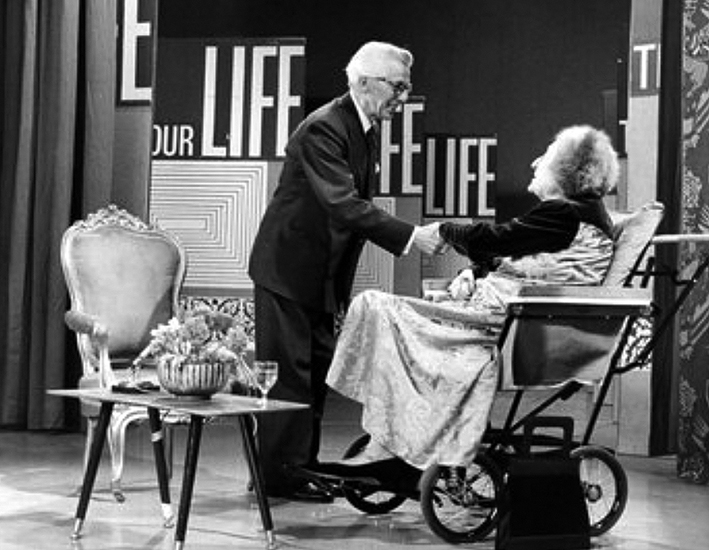
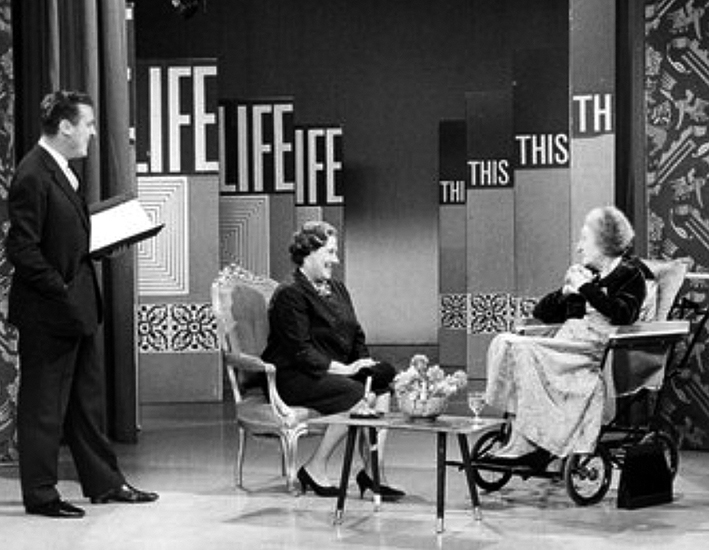
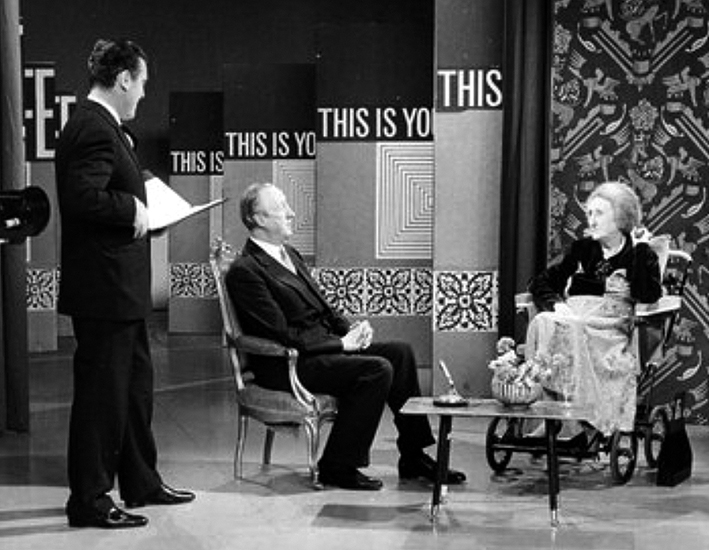
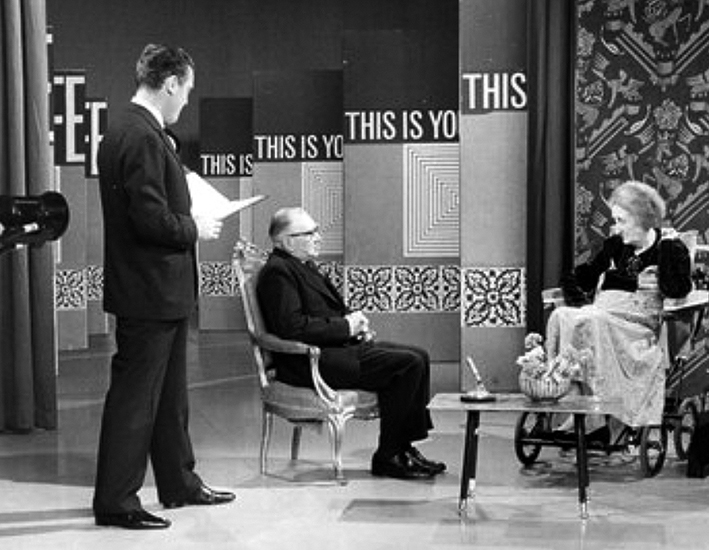
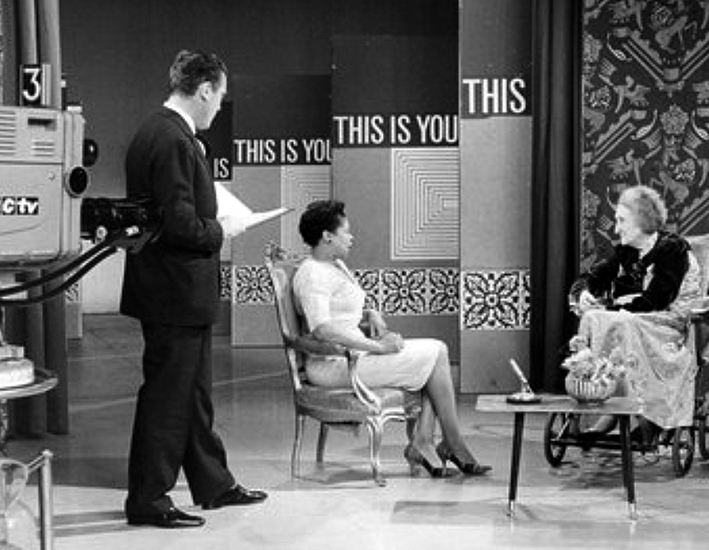
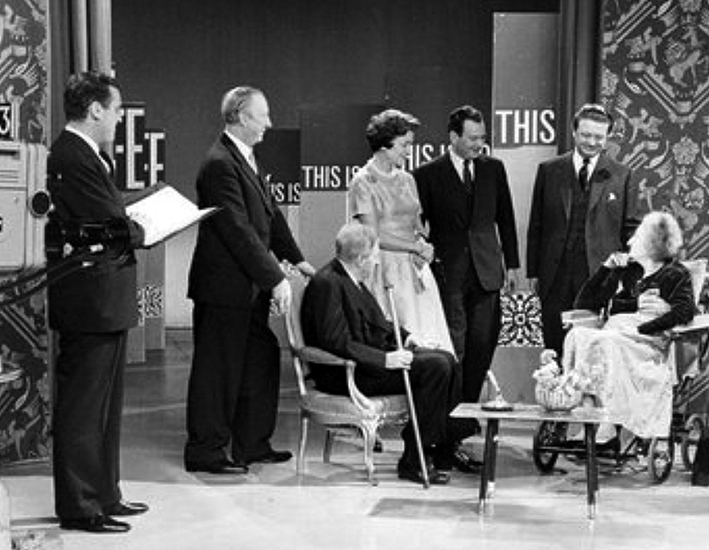
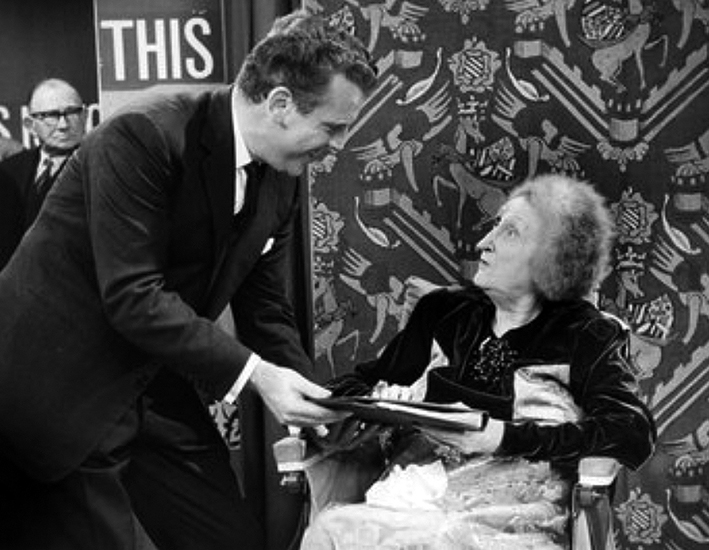
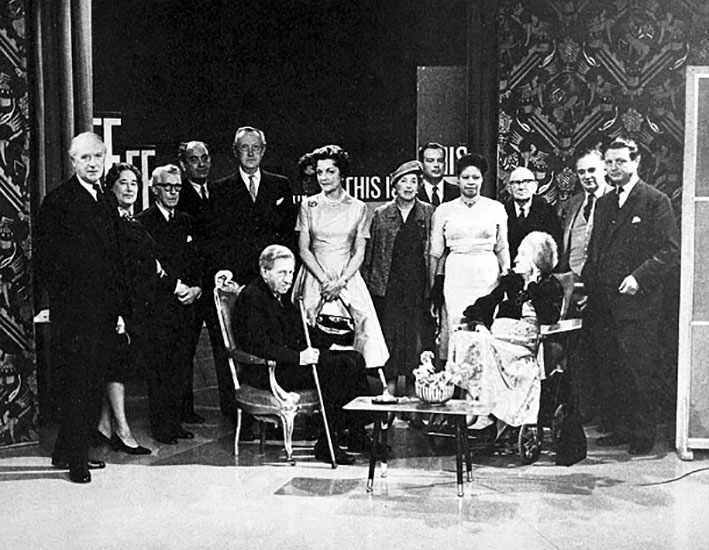
Photographs of Edith Sitwell This Is Your Life
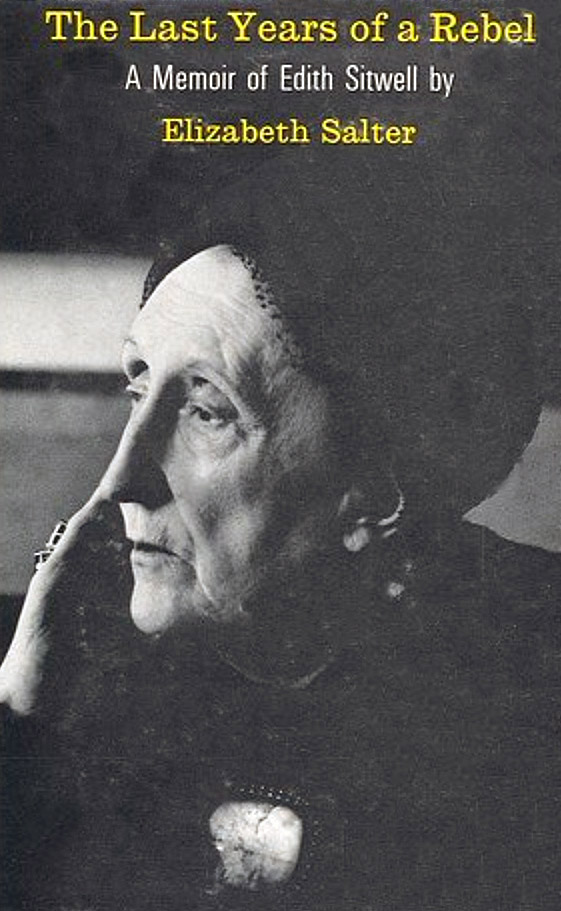
The second of her two 'memorials' that year could scarcely compete with the first. When the suggestion reached me that the B.B.C should make her the subject for their 200th edition of This Is Your Life, I knew that she must be warned and, together with her agents and her doctor, hoped that she would refuse it. [Bigredbook.info editor: this was actually the 201st edition of the programme]
Although, in those days, the subject of this programme was kept in total ignorance of the confrontations planned so that they would come as a surprise, in her case this could have proved fatal. A heart murmur that she had apparently had for the greater part of her life had now been diagnosed, and a shock coming so soon after the excitement of the concert might have been too much for her.
As I have already said, it was the knowledge that her coloured maid, Velma LeRoy, had agreed to appear on the programme that decided her. She refused to disappoint her, and so This Is Your Life on Monday 2nd October, 1963, featured, in the words of Eamonn Andrews, 'Dame Edith Sitwell, poet, writer, descendant of Robert the Bruce, the Red Rose Plantagenets and Macbeth'.
A press note after the event pointed out that, although Edith may well have justified the programme, it scarcely did justice to her. Certainly her comments to me when she talked about it later were dismissive. 'It simply did not happen like that,' she complained, and in relation to one of the 'guests' who appeared out of her past, 'Why they dragged that unfortunate man along I cannot imagine.'
However, the research department of the BBC had done its best. Her cousin Veronica Gilliat was there to recount the story of the girl who had turned her back on the races on her twenty-first birthday, and she added another eccentricity to those already accumulated by Sir Osbert on the subject of his father by producing the present he had given her on her twelfth birthday - a tortoiseshell cigarette case and holder. Sacheverell filled in the picture of Edith's youth by describing the assiduous girl who filled her notebook with quotations and who had been from the start 'determined to be remarkable'. Her old friend Dr Arthur Waley described the 'strong tea and sticky buns' served at Pembridge Mansions in the early days of her emancipation, which had attracted the best of the young talent in London. He also stressed her aversion to country walks, or, in fact, walking of any kind, except for one walk that they had taken together when they had received their honorary degrees from Oxford University. Even then, he said, Edith had made a fearful fuss about it. [Bigredbook.info editor: Dr Arthur Waley is included in the script but did not appear on the broadcast edition - he was replaced by Tom Driberg] Geoffrey Gorer described her love of music halls and her delight when mistaken on one occasion for Nellie Wallace. Diana Mathias, now Baroness de Bosmelet, together with Anthony Bernard, gave first-hand accounts of the cat-calls and pandemonium that greeted the first public performance of Facade. Cecil Beaton, who had always thought her 'much better than a model', took the narrative to the days when she posed for his early experiments in photography, enduring long periods on her knees, with her head in a huge Victorian glass dome and her joints cracking loudly in protest. George Cukor and Velma LeRoy represented the Hollywood saga and Marjorie Proops paid her tribute from the first paper to publish her work.
As snapshots from the album of her life, these were representative; as tributes to her stature as a person and as a poet, they were scarcely adequate. However, Velma LeRoy's fervent assurance that she was 'the world's most marvellous woman' touched Edith and justified the programme in her eyes. She enjoyed, too, showing her histrionic talents by feigning the enormous surprise she felt was expected of her. On the whole the evening did her no harm; in fact, it lessened the inevitable sense of anti-climax that followed her birthday.
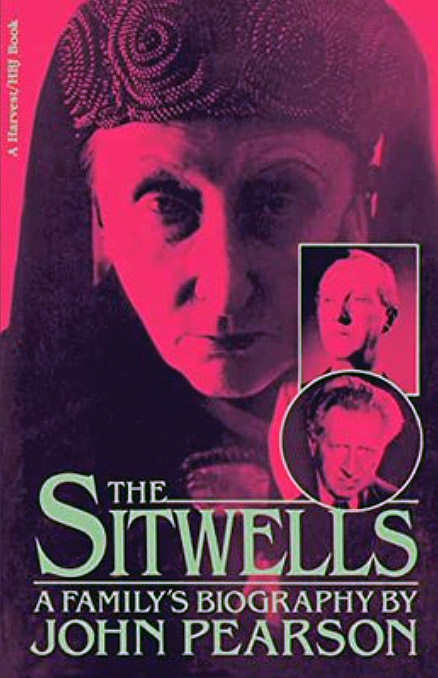
This was all but the last appearance of the public Edith. After the cheering it was the private Edith's turn to carry on. She relapsed totally after the excitement and it was a couple of weeks before she could face anyone again (although three weeks later a bemused Edith did just manage to stagger through the ordeal of This Is Your Life on television). It was not merely that the evening had exhausted her, although it had. But the truth was that, far from giving her the expected sense of triumph, this public crowning of her whole career had done the opposite, and she felt only despondency and bitterness with life. It was as if this final public recognition of her fame had convinced her that eminence was not worth the price that she had paid for it. She, after all, had sacrificed her life for this, lived by and for her poetry, and passionately nurtured and defended her unique public presence. Her life and poetry, she always felt, were one: the fame that she received she claimed in her priestess role for poetry.
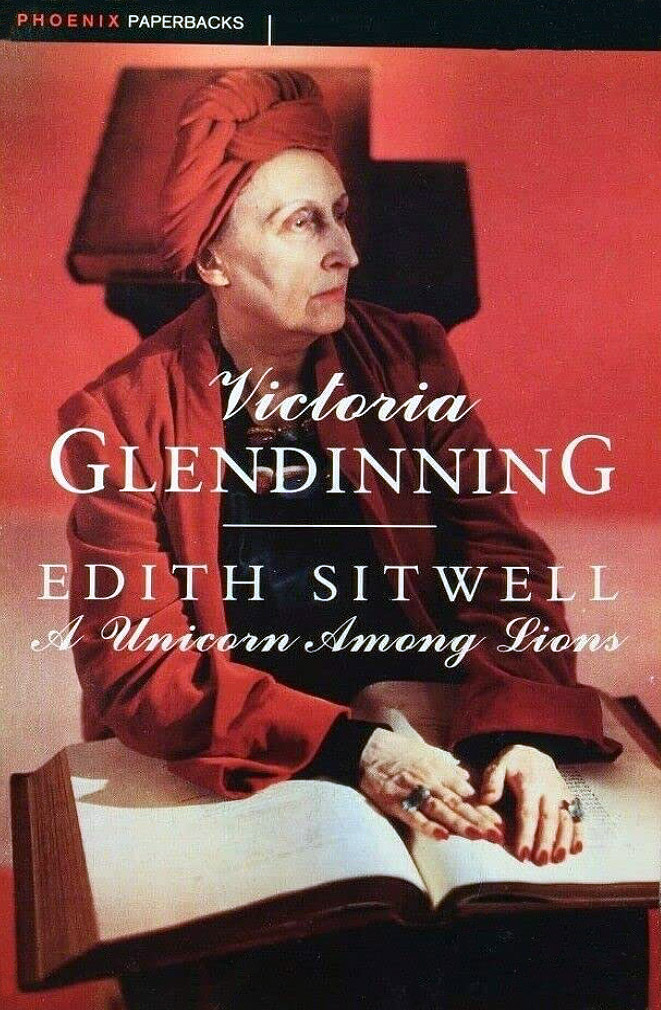
A few weeks later, on November 19, she was wheeled through the charade of television's This Is Your Life, conducted by Eamonn Andrews - "Mr. Andrews Inquisition," she called it. The subject is meant to be taken by surprise and hustled into the studio to be astonished by his old friends in a "biography" of memories and tributes; given Edith's ill health and temperament, she was forewarned. Only the news that Velma LeRoy, her black maid at Sunset Tower, was being specially flown over for the programme persuaded her to go through with it. "I could not dream of disappointing her."
Eamonn Andrews's researchers had rustled up a random and rather thin body of witnesses to Edith's life. Marjorie Proops, the popular columnist of the Daily Mirror, who had recently done a very successful interview with Edith, headed the list. Edith liked her very much on account of an article she had written about cruelty to animals; and the Daily Mirror had been the first paper ever to print one of her poems. Veronica Gilliat, old John Robins, Cecil Beaton, Tom Driberg, Geoffrey Gores, her brothers and nephews, all appeared and "remembered" stories about Edith in front of the cameras. George Cukor was filmed speaking from Hollywood. [Bigredbook.info editor: George Cukor's contribution was via a telephone message, not on film]
Velma LeRoy recalled on the programme how Edith had come to her thirty-first birthday party, with "a girl friend of mine, my sister, and two policemen." Dame Edith was, she said, "the world's most marvellous woman." It was Velma who, from first to last, justified the rather trivial undertaking for Edith.
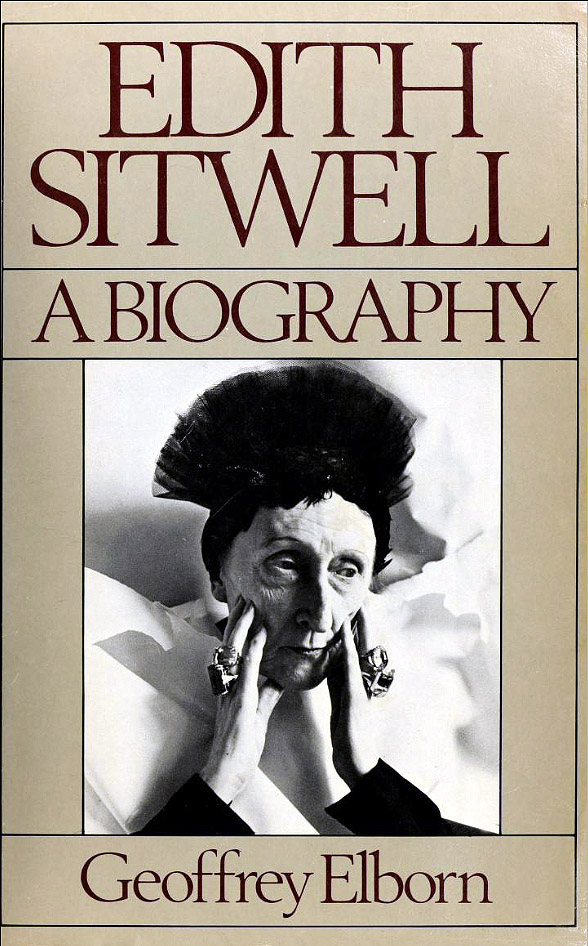
On the heels of her Memorial Concert came her appearance on This Is Your Life, the biographical television programme. Although the programme was usually sprung on the "Victim" as a surprise, Edith had been warned that she was to be the subject because her doctors had just diagnosed a heart murmur, which made any shock a potential danger.
Consequently, the guest list was scrutinised by Edith beforehand, and she approved the programme only because Velma, her black maid from the Hollywood days, was to be specially flown over. The programme did not generally please Edith, who commented, "It simply did not happen like that." However, as anticipated, Velma gave Edith great pleasure by telling her that she was "the world's most marvellous woman," and this alone justified the event for her.
Past difficulties with Cecil Beaton were forgotten, as she told him afterwards:
I am grateful to you dear Cecil, for what you said of me during the "Inquisition" and for all the great friendship most truly valued and over so many years, you have always and unfailingly shown to us. Everytime I see you I feel young again.

There was, however, one last event in her seventy-fifth birthday celebrations.
Francis had booked her on to This Is Your Life. Given that she had a heart murmur, Eamonn Andrews could not spring his usual surprise, as it might simply kill her – in which case the programme would need a different title. She was inclined to say no to the planned programme until she heard that her old maid Velma LeRoy was making the journey from California.
Broadcast on 6 November, the show brought together Osbert and Sachie, her cousin Veronica Gilliat, Cecil Beaton, Arthur Waley, Geoffrey Gorer, George Cukor, and others. The sentimental climax was Velma LeRoy's declaration that Edith was 'the world's most marvellous woman'. [Bigredbook.info editor: Arthur Waley is included in the script but did not appear on the broadcast edition - he was replaced by Tom Driberg]
Series 8 subjects
Rupert Davies | Kenneth Revis | Sydney MacEwan | Cleo Laine | Arthur Baldwin | Edith Sitwell| Ben Fuller | Robert McIntoshMabel Lethbridge | Stephen Behan | Ruby Miller | Richard Attenborough | Daniel Kirkpatrick | Michael Wilson | Dick Hoskin
James Carroll | Uffa Fox | George Cummins | Hattie Jacques | Sam Derry | Finlay Currie | Phyllis Lumley | Ben Lyon | Bertie Tibble
Zena Dare | Victor Willcox | Learie Constantine | Phyllis Holman Richards | Michael Bentine | Joe Loss | Gladys Aylward